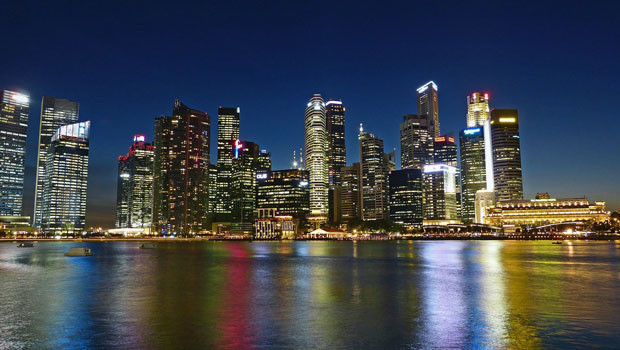Asia report: Markets mostly higher, producer prices surge in China

Markets in Asia closed mostly higher on Thursday, although bourses in China were mixed, as investors digested the latest inflation data out of the People’s Republic.
In Japan, the Nikkei 225 was up 1.46% at 28,550.93, as the yen weakened 0.09% against the dollar to last trade at JPY 113.35.
It was a positive session for the benchmark’s major components, with robotics specialist Fanuc up 2.29%, Uniqlo owner Fast Retailing adding 1,86%, and technology giant SoftBank Group up 0.94%.
The broader Topix index was 0.67% firmer by the end of trading in Tokyo, closing at 1,986.97.
On the mainland, the Shanghai Composite was down 0.1% at 3,558,28, and the smaller, technology-centric Shenzhen Composite was up 0.2% at 2,399.26.
Fresh data out of Beijing showed producer prices in China rocketing 10.7% year-on-year in September, beating expectations for a 10.5% rise pencilled in by economists polled by Reuters.
Consumer prices also grew, eking out a rise of 0.7% for September, which was just shy of the 0.9% anticipated by the Reuters poll.
Traders in Hong Kong had the day off for the ‘Double Ninth Holiday’, while South Korea’s Kospi rose 1.5% to 2,988.64.
The blue-chip technology stocks were on the front foot in Seoul, with Samsung Electronics up 0.87% and SK Hynix ahead 1.96%.
Singapore’s market was also in focus, with the Straits Times Index closing 0.27% higher after the city-state’s central bank unexpectedly turned the screws on monetary policy.
The Monetary Authority of Singapore said it was “slightly” raising the slope of its currency band from the 0% level it was at previously, meaning the Singapore dollar would be permitted to appreciate against a basket of currencies within an undisclosed envelope.
How wide that envelope is, and the level of its centre point, remained unchanged, the central bank said in its semiannual statement.
That came as the latest official estimates showed the country’s economy growing 6.5% year-on-year in the third quarter, just short of a Reuters-polled estimate for 6.6% growth.
“There has been fears in the market in recent months that a slowdown in the pace of economic growth in China, together with any fallout should property giant Evergrande collapse, might affect commodities demand from the Asian superpower,” said AJ Bell investment director Russ Mould.
“On a broader basis, a slowdown in the global economic recovery could easily trigger a pullback in commodity prices in the near-term, but for today it seems that investors are very much risk-on.”
Oil prices were higher as the region went to bed, with Brent crude last up 1.21% at $84.19 per barrel, and West Texas Intermediate ahead 1.13% to $81.35.
In Australia, the S&P/ASX 200 was 0.54% higher at 7,311.70, while across the Tasman Sea, New Zealand’s S&P/NZX 50 advanced 0.18% to 13,048.49.
The down under dollars were both stronger on the greenback, with the Aussie last ahead 0.48% at AUD 1.3488, and the Kiwi advancing 0.75% to NZD 1.4245.